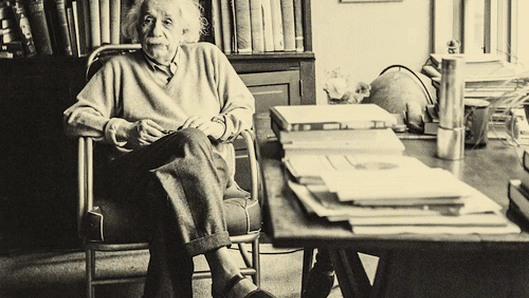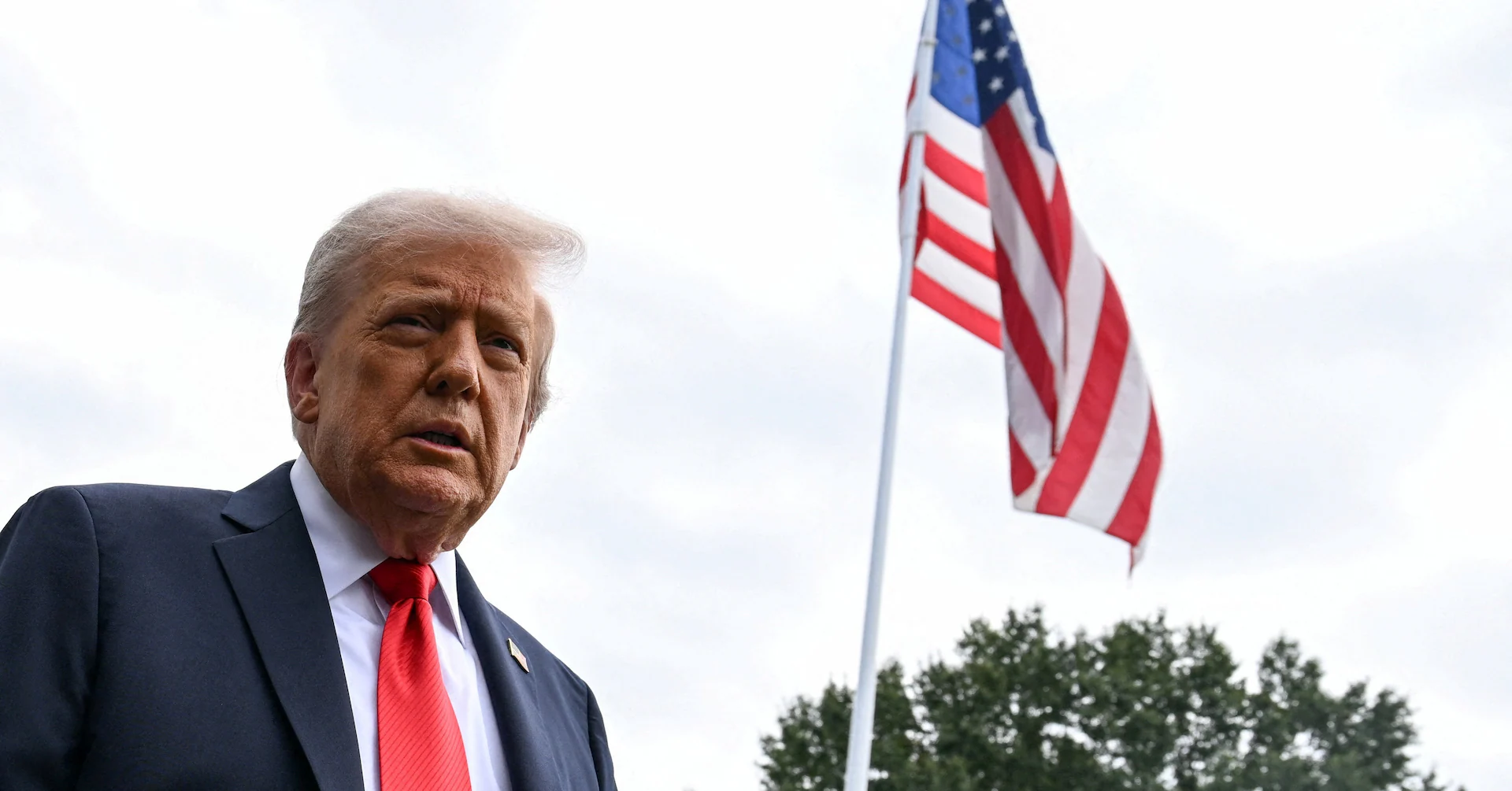By Angus Holland
Copyright smh

Nobel dictated furthermore that each prize could be shared, but by no more than three people, though entire organisations could be nominated for the peace prize (such as the International Campaign to Abolish Nuclear Weapons, which won it in 2017). Nobel also stipulated that “no consideration be given to nationality, but that the [prizes] be awarded to the worthiest person, whether or not they are Scandinavian”.
The prize for economics was added in 1968, funded in perpetuity by Sweden’s central bank, the Sveriges Riksbank, “in memory of” Alfred Nobel. It is treated as equal to Nobel’s original five and carries the same prize money.
You can’t nominate yourself for a Nobel, and you shouldn’t reveal who you’ve nominated (even if some do). For physics, for example, nominations are sought from members of the Swedish Academy of Sciences, members of the Nobel Committee for Physics, previous physics laureates, tenured professors at a select group of universities and “other scientists from whom the Academy may see fit to invite proposals”. Recipients must be alive when their award is announced (though the organisation once made an exception for a winner who, unbeknownst to them, had died just beforehand).
A prize can’t be revoked once awarded. No appeals can be made. Even if you refuse to accept the prize, as did Vietnamese politician Le Duc Tho in 1973 and the French philosopher Jean-Paul Sartre in 1964 (who believed the prize would compromise his work), you are still listed as having won. “The fact that he has declined this distinction does not in the least modify the validity of the award,” sniffed the awarding panel of the Sartre controversy).
This year, laureates will be announced on October 6 for medicine, October 7 for physics, October 8 for chemistry, October 9 for literature, October 10 for the peace prize, and October 13 for the economics prize. Winners are expected to attend the awards ceremonies in Stockholm and Oslo on December 10, the anniversary of Nobel’s death.
What’s the best way to win a Nobel?
The British microbiologist Richard J. Roberts did not make a promising start to a career in science, finding school so boring he failed his physics “A” Level (the UK’s school-leaving exam) and had to repeat his final year. At university, though, he found his way into biology and went on to make important discoveries in the world of RNA, the “messenger” within DNA that makes sure instructions are carried out within cells.
In 1993, he shared the Nobel Prize for physiology or medicine with the American biologist Phillip A. Sharp (another slightly unusual winner who had grown up on a farm in Kentucky and saved for college tuition by raising cattle and growing tobacco). Much later, Roberts was asked by an academic journal for his top 10 tips on how to win a Nobel in one of the fields of science.
Only if you are extraordinarily lucky will you stand any chance of winning a Nobel Prize
Rule No.1, he wrote: Don’t hope or even think about it. “If you are successful in your research career, then you will make lots of discoveries and have a very happy life. If you are lucky, you will make a big discovery that may even bag you a prize or two. But only if you are extraordinarily lucky will you stand any chance of winning a Nobel prize. They are very elusive.”
His other tips include: collaborate (but with no more than two others, since the prizes can only be shared among three people, see above); be nice to Swedish scientists (who may have influence with the Nobel organisation); work in the laboratories of past or potential future Nobel-winners; already have won once (which seems to increase your chances of getting a second), study biology, which offers many opportunities for discovery (“we still know relatively little about it”); and, critically, don’t plan your life around your Nobel prospects. “This has proven disastrous for many people. I know several scientists who became convinced that they were going to win and had all sorts of plans for less-than-modest speeches acknowledging the award of the prize, preparing comments for journalists and planning subsequent trips to exotic places to talk about their discovery. ”
The science journal Nature, which analysed Nobel-winning trends, added that your chances are improved by working in the US, where most Nobel laureates have been based (as was Brian Schmidt) and by specialising in particle physics, cell biology or atomic physics (the top three scientific fields with the most Nobels). That’s partly because the US has attracted scientific talent from across the planet, says Peter Doherty, “A situation that has now changed with the attack on science by the current US administration.”
Comparatively few laureates have been women, Marie Curie the only one to win twice. Before 1970, only three women had won the peace prize, which until then was largely the preserve of “highly educated white men from Europe and the United States”, as the Nobel organisation admits today. There are still only 19 women peace-prize winners (among them Mother Teresa, 1979, and Malala Yousafzai in 2014, who at 17 became the prize’s youngest winner, for advocating for girls’ education) compared with more than 90 men.
“This reflects the continuing systemic exclusion and marginalisation that has kept women from positions of power, visibility, and recognition in peacebuilding and diplomacy,” reflects Jody Williams, who was just the 10th woman to win the peace prize, in 1997. “Never mind that we know women don’t start wars, that when women are involved in peace processes they are more inclusive and longer lasting, and that women are the ones holding communities and lives together while wars waged by men cause death and destruction.”
And despite Alfred Nobel’s notion that the prizes should recognise achievements from the previous year, you’re extremely unlikely to win a science prize, in particular, within even a decade or two of your breakthrough research, a delay we might dub “Nobel lag”.
There’s a logjam of worthy contenders ahead of you in the Nobel queue lining up to be recognised; and the Nobel organisation is keen to make sure your discovery is both correct (some have turned out not to be) and of long-lasting value to humanity. Science in particular can take a lot of time, notes astronomer Brian Keating in his book Losing the Nobel Prize. “Decade-long experimental searches are common. Decades more are sometimes required to vet, and to replicate, the discoveries.”
To wit: Isamu Akasaki, Hiroshi Amano and Shuji Nakamura, the trio responsible for designing the first blue LED light that could be used commercially, in 1993, had to wait until 2014 for their prizes. (Blue LED combines with red and yellow LEDs to make white light and today is used in everything from TVs to energy-efficient lightbulbs to smartphones.) Schmidt, in Australia, and Perlmutter and Riess in the US, made their discoveries around 1998 but had to wait until 2011 for the shared Nobel. Doherty and his co-winner claimed theirs in 1996 for a discovery published in 1974. “We got it 22 years out, and that’s absolutely average.”
Why are they sometimes controversial?
The Nobels have occasionally gone awry. There have been instances of women being passed over for their undeserving male colleagues or bosses, awards given for research that was later found to be bunk (notably, Danish physician Johannes Fibiger’s Nobel for research into cancer in rats, which was later proven completely false), Nobels clumsily awarded to make good for previous oversights, and Nobels given off the back of what was arguably somebody else’s earlier work. One laureate tells us the Nobels celebrated another researcher who had appropriated their findings wholesale. “Basically, there’s not much you can do about it,” they tell us. “He was an asshole.” (The Nobel Foundation eventually made good for our laureate with a subsequent prize many years later.)
Albert Einstein, who should surely have won the prize for physics several times, was only awarded it once, in 1922, for one of his lesser-known discoveries, the omissions reportedly because he had an enemy on the Nobel committee who thought Einstein’s theories just didn’t jibe with common sense … which of course they didn’t. Gandhi, for his part, was probably technically not eligible given that Nobel dictated the peace prize must be awarded “for fraternity between nations, for the abolition or reduction of standing armies and for the holding and promotion of peace congresses” – but one imagines today the organisation might have conjured up a loophole.
Literature prizes are always subjective to some degree, says Peter Doherty, who has attended several award ceremonies as a consequence of being an invited speaker at pre-Nobel events. There’s a long line of winners most people had never heard of, writing in languages that the Nobel judges couldn’t understand, while Henry James, Anton Chekhov, Henrik Ibsen, Joseph Conrad and Virginia Woolf are among the numerous luminaries who have missed out.
But it’s the Nobel Peace Prize, awarded by a committee appointed by the Norwegian parliament, that can ruffle feathers most, says Doherty. “They’re frequently highly political because they’re trying to influence affairs, and sometimes they get things wrong. I mean, they should never have given one to Obama.” A former secretary of the Peace Prize committee, Geir Lundestad, would later write that the intention of the prize had been to strengthen Obama’s resolve, which had probably been misguided – a case of aspiration rather than achievement. “Even many of Obama’s supporters believed that the prize was a mistake,” he wrote. Obama himself acknowledged some discomfort at winning in a press conference he gave in the White House Rose Garden. “To be honest, I do not feel that I deserve to be in the company of so many of the transformative figures who’ve been honoured by this prize, men and women who’ve inspired me and inspired the entire world through their courageous pursuit of peace.”
As for the current president, “For nearly a decade, Mr Trump has publicly and privately complained that he has yet to win the prestigious prize,” notes The New York Times. ”He has mentioned the award dozens of times in interviews, speeches and campaign rallies dating back to his first term.”
If Trump was nominated before the February 1 deadline, he may yet be a chance. It’s understood the Norwegian Nobel Institute will not only consider his past achievements but anything noteworthy between his nomination and when they make the final decision, probably in early October, according to its director, Olav Njølstad.
But maybe Trump shouldn’t worry so much about winning one anyway. “Lots of people don’t really know what a Nobel prize is,” the economics laureate David Card tells us. “I took a taxi to an event when I won the prize and my wife proudly told the driver where we were going, but he had no knowledge of Nobel prizes. After that we decided to keep it to ourselves.”
This Explainer was brought to you by The Age and The Sydney Morning Herald Explainer team: editor Felicity Lewis and reporters Jackson Graham and Angus Holland. For fascinating insights into the world’s most perplexing topics, sign up for our weekly Explainer newsletter. And read more of our Explainers here.



